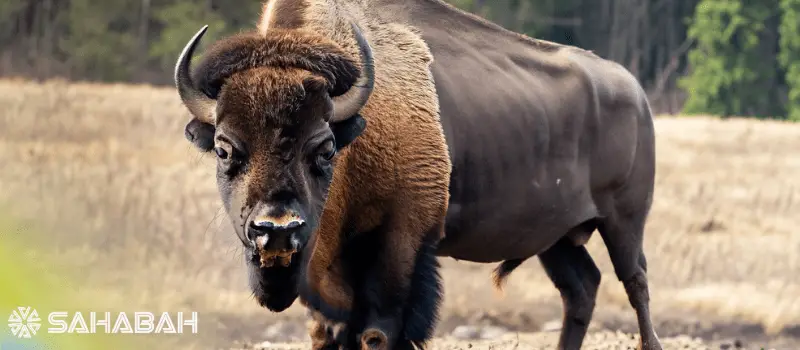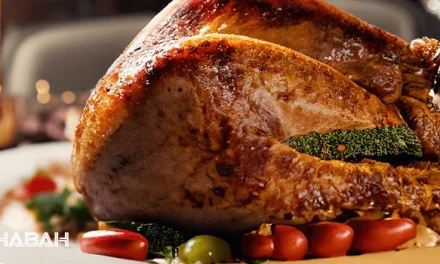As a food enthusiast and a firm believer in the importance of halal dietary choices, I embarked on a fascinating journey to uncover the halal status of bison meat. In this comprehensive guide, I will delve into the intricacies of halal certification, the religious perspectives surrounding consuming exotic meats, and provide a definitive answer to whether bison meat can be enjoyed with confidence by those adhering to halal principles.
Are Bison the Next Red Meat Option for Muslims
Bison are large, shaggy mammals that are native to North America. Historically, they roamed the plains in massive herds, and were a vital resource for many Native American tribes. Today, bison are raised on farms and ranches primarily for their meat.
There has been growing interest in the Muslim community regarding whether bison meat is permissible to eat according to Islamic dietary laws. Several key factors must be considered in determining if bison is halal:
- Taxonomy and relation to cattle
- Feeding habits
- Slaughter method
- Blood removal
- Opinions of Islamic scholars
This article will analyze these key points to evaluate the halal status of bison meat. It will provide an overview of Islamic dietary restrictions, then closely examine the evidence regarding bison to reach a conclusion on whether it can be safely consumed by Muslims adhering to halal guidelines.
Brief Overview of Islamic Dietary Laws
Islamic dietary laws regarding what foods are permitted and prohibited are derived from the Quran and the teachings of the Prophet Muhammad (pbuh) . Some key restrictions include:
- Prohibition of pork, blood, and carrion: The Quran explicitly forbids consumption of pork and blood in verses such as:
“Forbidden to you (for food) are: dead meat, blood, the flesh of swine…” (Quran 5:3)
-
Animal slaughter requirements: For meat to be halal, the animal must be slaughtered according to zabiha guidelines which include:
- Invoking the name of God before slaughter
- Cutting the throat and main arteries to allow blood to drain
- Treating the animal humanely and reducing suffering
-
Other prohibited categories: Islam also prohibits consumption of carnivorous animals, birds of prey, land animals without external ears, and intoxicants such as alcohol.
In general, herbivorous animals and birds that eat a natural diet and are slaughtered in the correct manner are considered halal. Ruminants like cows, sheep, and goats are expressly halal.
With this context of core Islamic dietary laws, we can now analyze the specific factors related to bison meat and its halal status.
Analysis of Factors Regarding Bison’s Halal Status
There are several key considerations when determining if bison meat is halal:
Taxonomy and Relation to Cattle
- Bison are members of the bovidae family along with cows and buffalo
- Close genetic relationship to domestic cattle
- “Bison are bovine animals, closely related to cows in the same family of mammal under the suborder Ruminantia.”
- This taxonomic proximity to cattle, which are clearly halal, supports the permissibility of bison
Feeding Habits
- Bison are herbivores that graze on grasses, sedges, and herbs
- “Their diet consists of wild grasses, flowers, and herbs.”
- Similar vegetarian diet to domestic cattle
- Lack of meat or blood in natural diet aligns with Quranic guidelines
Slaughter Method
- Modern bison slaughtered via captive bolt gun to head, then throat slit
- This renders instant loss of consciousness, but some debate if it qualifies as proper zabiha
- “This method of slaughter is considered permissible by some scholars, while others disagree and advise performing personal zabiha.”
- Areas of contention regarding acceptability of captive bolt stunning
Blood Removal
- Blood is drained immediately after slaughter
- Carcasses later go through rendering process to remove residual blood
- Ensures final meat product is essentially blood-free
- Satisfies Quranic prohibition on blood consumption
Opinions of Islamic Scholars
- Mixed views among Muslim experts regarding bison halal status
- Some permit it based on taxonomy, diet, blood removal
- Others hesitate or prohibit due to slaughter method, advise personal zabiha
- Lack of consensus, though majority lean toward considering bison halal
Is Bison Halal – Frequently Asked Questions
Yes, bison meat is considered halal. Bison is a type of red meat from the cow family, and according to Islamic dietary laws, any land animals such as cows that are permissible to be eaten are also considered halal.
How is bison meat slaughtered?
Bison meat is slaughtered according to Islamic guidelines for halal slaughter. The animal is slaughtered by a qualified Muslim who recites a prayer and ensures the proper technique is followed to ensure the meat is halal.
Can bison meat be considered halal if it is not specifically labeled as such?
Yes, bison meat can be considered halal even if it is not specifically labeled as such. As long as the meat comes from an animal that is permissible to be eaten (e.g., bison), and it is slaughtered according to Islamic guidelines, it is considered halal.
Is ground bison halal?
Yes, ground bison is halal as long as the bison meat itself is halal. The same rules for halal slaughter apply regardless of whether the meat is ground or in other forms.
Is it possible to find halal bison products?
Yes, there are halal bison products available in the market. Some food companies specifically produce bison meat that is slaughtered according to halal standards and labeled as halal.
Can bison meat be considered a substitute for other halal meats?
Yes, bison meat can be considered as a substitute for other halal meats, such as beef or goat. It is a red meat with a rich nutrient content, and many Muslims choose to include it in their halal diet.
How should I cook bison meat to maintain its halal status?
To maintain the halal status of bison meat during cooking, it is important to use halal ingredients and ensure that the cooking utensils and surfaces are clean and free from contamination with non-halal substances. Following Islamic dietary guidelines throughout the cooking process will help preserve the halal status of the meat.
9. Are all cuts of bison meat considered halal?
Yes, all cuts of bison meat are
Conclusion
In summary, there are strong arguments in favor of considering bison meat to be halal:
-
Bison are closely related to cows, both being bovids under the scientific suborder Ruminantia. Cows are expressly permitted by Islamic law.
-
As herbivores, bison possess a natural vegetarian diet of grasses and herbs that complies with halal guidelines.
-
Although the captive bolt stunning method used in commercial slaughter raises some questions, bison carcasses undergo thorough rendering to remove all blood. This satisfies the Quranic prohibition on consuming blood.
-
Many prominent Islamic experts and organizations certify bison as halal, emphasizing the taxonomic and dietary evidence. As QuranRumi states: “Based on analysis of the Hanafi school’s guidelines, bison can be safely regarded as a halal source of meat for Muslims.”
However, a minority of scholars prohibit bison due to doubts over the slaughter method. This disagreement demonstrates the need for further scholarly discussion and evaluation of what constitutes proper zabiha in modern times.
In the meantime, the bulk of evidence points to bison being halal. For Muslims desiring absolute certainty, seeking out bison meat slaughtered through personal zabiha is recommended. But for most purposes, bison can be considered a halal alternative to beef.





